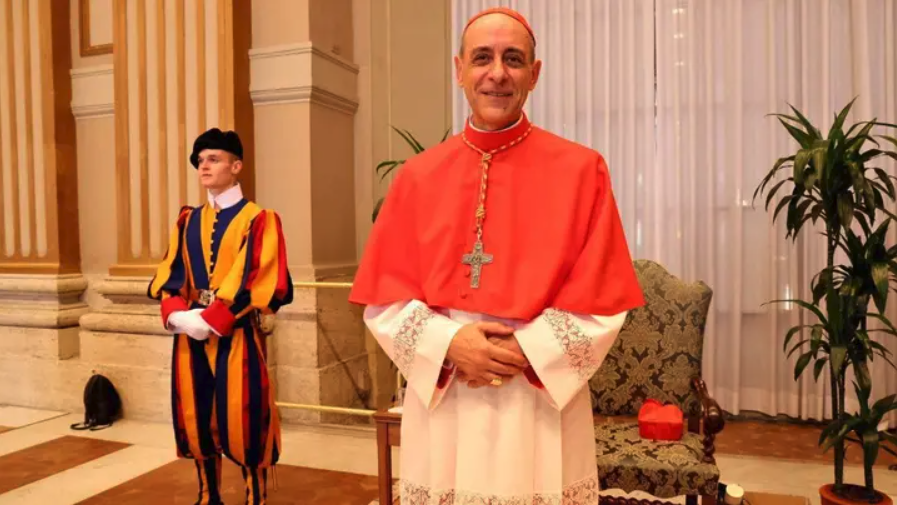The Vatican has clarified that each bishop is free to either adopt or ignore its recommendation for “spontaneous” blessings of people in a same-sex relationship.
Cardinal Víctor Manuel Fernández, prefect for the Vatican’s Dicastery for the Doctrine of the Faith (DDF) and author of the controversial Fiducia Supplicans, told Spanish news outlet ABC that bishops must make a “discernment” for themselves whether to implement the sanctioned blessings.
Fernández affirmed that the guidance “cannot disagree with that doctrine,” saying “if the text is read with an even disposition, it can be seen that it supports with great clarity and simplicity the perennial Catholic teaching on marriage and sexuality,” according to translations from Catholic News Agency.
However, Fernández expressed understanding that in many contexts a blessing could be misunderstood or overly scrutinized, causing confusion or scandal.
Speaking of African bishops who have rejected the idea of ever blessing a person in an open homosexual relationship, Fernández expressed sympathy that in many countries “there is legislation that penalizes with prison the mere fact of declaring oneself to be gay, imagine [what a] a blessing [would do],” according to CNA.
The prefect added that “it’s proper for each local bishop to make that discernment in his diocese or in any case, to give further guidance.”
Backlash
After the Dec. 18 publication of Fiducia Supplicans, there have been declarations from various bishops or bishops’ conferences around the world that have expressed diverse opinions.
Bishops from some nations such as Germany, Austria, and France have expressed satisfaction with the declaration, and some of them have even gone so far as to say that priests cannot refuse to impart these non-ritual blessings to persons in an irregular situation.
In other countries such as the United States, Ukraine, Ghana, Kenya, and Mexico, bishops have shown their support while warning of the difficulty of ensuring that these pastoral gestures do not lead to confusing people about a change in the doctrine on marriage and sexuality in the Catholic Church.
Along those lines, the bishop of Orihuela-Alicante in Spain, José Ignacio Munilla, noted that although the declaration is not “heretical,” its application can be “chaotic.”
The bishops of at least three countries have banned the application of Fiducia Supplicans: Kazakhstan, Malawi, and Zambia.
‘Non-ritualized blessings’ and not a ‘marriage’
Fernández told ABC that the informal or “pastoral” blessing permitted by Fiducia Supplicans does not mean, in the case of homosexual persons, “accepting a marriage, nor is it a ratification of the life they lead, nor is it an absolution. It is a simple gesture of pastoral closeness that does not have the same requirements of a sacrament.”
“We will have to get used to understanding that if a priest gives this type of simple blessing he is not a heretic, he is not ratifying anything, nor is he denying the Catholic doctrine on marriage,” the cardinal added.
Asked if this declaration is a first step toward the acceptance of homosexual behavior or equating marriage with unions between persons of the same sex, Fernández was blunt.
“That perception is totally incorrect,” the cardinal said, “and whoever says that has either not read the text or is ‘in a bad mood,’ allow me the expression. The statement states clearly and endlessly that these are non-ritualized blessings, so that they are not interpreted as a marriage.”
 The Libertarian Catholic
The Libertarian Catholic
















